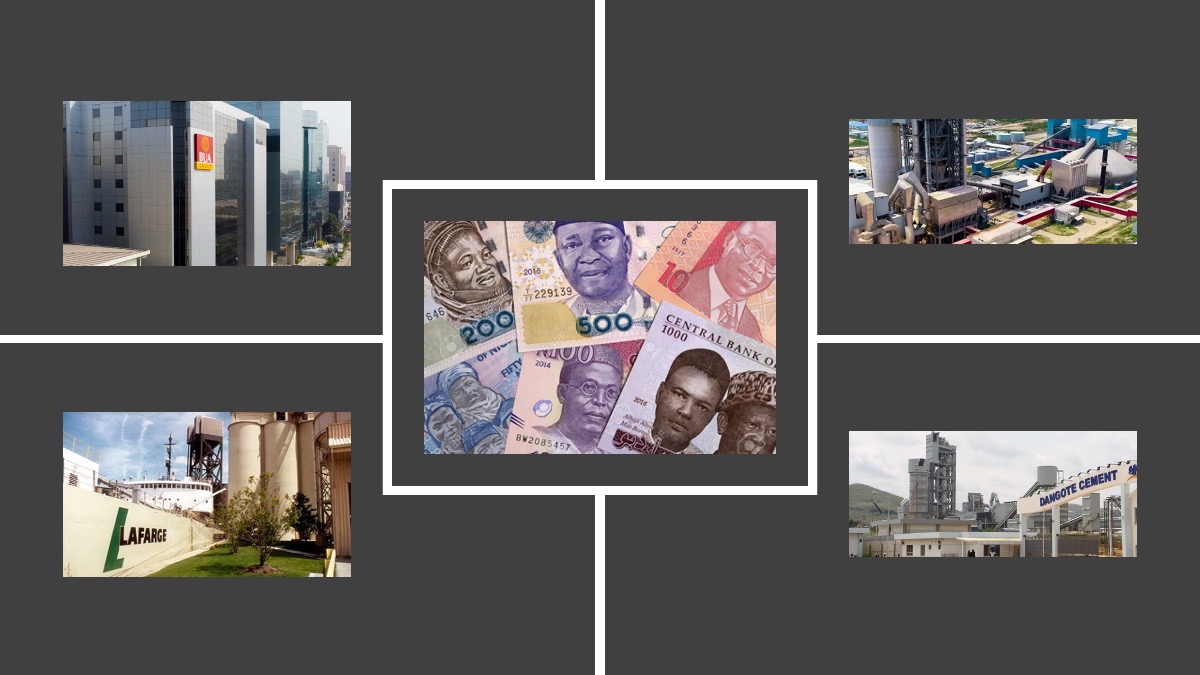Currency volatility and rising debt levels are presenting serious challenges to Nigeria’s mining and cement sectors. As key contributors to the nation’s economy, these industries rely heavily on stable macroeconomic conditions to thrive. However, with persistent naira depreciation and mounting financial obligations, companies are struggling to maintain profitability and competitiveness. This article examines the impact of these economic headwinds and outlines strategies for resilience.
The Role of Mining and Cement in Nigeria’s Economy
1. Contribution to GDP
- The mining and cement industries account for a significant portion of Nigeria’s GDP, driving growth in construction, manufacturing, and export sectors.
- Major players like Dangote Cement Plc, BUA Cement Plc, and Lafarge Africa Plc dominate the cement market, while smaller mining firms contribute essential raw materials.
2. Dependency on Imports
- Both sectors depend on imported machinery, spare parts, and fuel, making them vulnerable to currency fluctuations.
- Imported components are critical for operations, from cement kiln maintenance to mineral extraction equipment.
Key Insight: The heavy reliance on imports amplifies the impact of currency volatility on operational costs and debt servicing.
Impact of Currency Volatility
1. Rising Costs of Imports
- The naira’s persistent depreciation increases the cost of imported raw materials and machinery.
- Fuel and energy inputs, often priced in dollars, have become significantly more expensive, eroding profit margins.
2. Inflationary Pressures
- Currency devaluation contributes to rising inflation, further increasing production costs.
- Higher costs are often passed on to consumers, reducing demand in price-sensitive markets.
3. Export Challenges
- While currency depreciation can make Nigerian exports more competitive, logistical inefficiencies and trade barriers often negate these advantages.
- Exporting to regional markets under the African Continental Free Trade Area (AfCFTA) presents opportunities but requires operational efficiency to capitalize.
Key Insight: Currency volatility creates a double-edged sword, raising operational costs while offering limited export competitiveness.
The Debt Burden
1. High Borrowing Costs
- Nigerian companies face one of the highest borrowing costs globally, with interest rates exceeding 20%.
- Debt servicing costs consume a significant portion of revenues, leaving little room for reinvestment.
2. Dollar-Denominated Debt
- Many firms in the mining and cement sectors have dollar-denominated loans to finance capital-intensive projects.
- Naira devaluation increases the cost of repaying these loans, worsening financial stress.
3. Impact on Smaller Players
- While industry giants like Dangote Cement can leverage economies of scale, smaller companies struggle to manage debt and remain competitive.
- High leverage ratios make smaller firms particularly vulnerable to interest rate hikes and currency fluctuations.
Key Insight: Rising debt levels, compounded by currency volatility, threaten the financial stability of Nigeria’s mining and cement sectors.
Case Studies: Impact on Industry Leaders
Dangote Cement Plc
- Strengths: Vertical integration minimizes exposure to external cost pressures.
- Challenges: Dollar-denominated loans increase financial strain despite strong export revenues.
BUA Cement Plc
- Strengths: Investments in renewable energy reduce reliance on imported fuel.
- Challenges: Rising costs of imported machinery and spare parts pressure margins.
Lafarge Africa Plc
- Strengths: Sustainability initiatives improve operational efficiency.
- Challenges: High debt levels constrain growth opportunities.
Key Insight: Even the largest players are not immune to the financial pressures created by currency volatility and debt.
Strategies for Resilience
1. Hedging Against Currency Risk
- Companies can use financial instruments like forward contracts and options to hedge against currency fluctuations.
- Diversifying revenue streams through exports can provide a natural hedge.
2. Debt Restructuring
- Negotiating longer repayment terms and lower interest rates can ease debt servicing pressures.
- Refinancing dollar-denominated debt with local currency loans can reduce exposure to exchange rate risks.
3. Localizing Supply Chains
- Sourcing raw materials and components locally reduces reliance on imports and mitigates currency volatility.
- Partnerships with local manufacturers can foster supply chain resilience.
4. Investing in Renewable Energy
- Transitioning to renewable energy sources like solar and biomass can lower energy costs and reduce dependency on imported fuel.
- Energy efficiency initiatives, such as upgrading machinery, improve cost management.
Key Insight: Proactive financial and operational strategies are essential for navigating currency and debt challenges.
The Role of Policy and Regulation
1. Government Support
- Providing access to low-interest loans through development banks can alleviate debt burdens.
- Incentives for renewable energy adoption can lower operational costs for energy-intensive industries.
2. Exchange Rate Stabilization
- Central Bank interventions to stabilize the naira can reduce currency volatility and its downstream effects on industries.
3. Trade Facilitation
- Streamlining export processes under AfCFTA can help companies capitalize on regional opportunities.
Key Insight: A supportive policy environment is critical for mitigating the economic headwinds facing mining and cement companies.
Conclusion
Currency volatility and rising debt levels present significant challenges to Nigeria’s mining and cement industries. As key pillars of the economy, these sectors must adapt to an increasingly uncertain macroeconomic environment. Strategies such as hedging, debt restructuring, and localizing supply chains offer pathways to resilience, while government support can further strengthen the industries’ foundations.
For investors and stakeholders, the current economic headwinds underscore the importance of prudent financial management and strategic innovation. By navigating these challenges effectively, Nigeria’s mining and cement companies can continue to drive industrial growth and economic development.

Leave a Reply